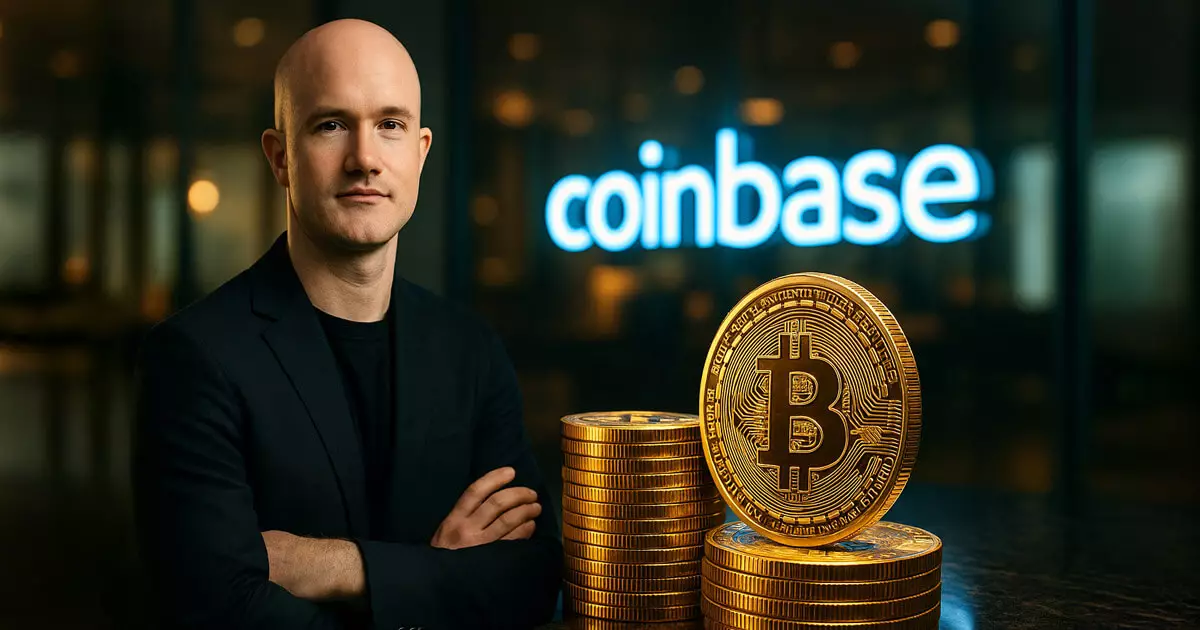Recently, Coinbase CEO Brian Armstrong dropped a revealing hint that his company is quietly accumulating Bitcoin on a weekly basis. While this isn’t an outright confirmation of a corporate Bitcoin treasury, the deliberate, steady approach unmistakably signals a deeper bet on the cryptocurrency. Armstrong’s admission follows public calls from influential voices like Bitcoin Magazine’s CEO, who urged Coinbase to formalize such a reserve. While some herald this move as a bold embrace of digital asset leadership, I am skeptical about the prudence and timing of this strategy.
Why Now? Shifting Minds or Market Hype?
Historically, Coinbase has been cautious about staking its financial future too heavily on Bitcoin. Armstrong himself previously explained that heavy Bitcoin allocations were avoided because the volatility could jeopardize company stability during early growth phases. So what changed? The current enthusiasm for Bitcoin treasuries among public companies—from Strategy (formerly MicroStrategy) to GameStop and others—may be creating peer pressure. Yet, following herd strategies in a highly speculative market is a dangerous game. Coinbase seems to be flirting with a high-stakes experiment that could either cement its status as a crypto pioneer or expose it to debilitating market swings.
The Risk of Corporate Bitcoin Hoarding
On the surface, adding Bitcoin to one’s balance sheet might look like diversification or an inflation hedge. However, Coinbase’s own Head of Research, David Duong, has warned about the structural dangers of more public companies piling into Bitcoin. The problem is market depth and volatility. When major corporate holders become significant players in Bitcoin markets, their forced selling—triggered by unexpected shocks or financial distress—could cascade destabilizing effects across exchanges and investors. This isn’t hypothetical—it’s a risk that crypto markets have yet to fully reckon with. Coinbase, as a leading exchange, should arguably be more wary than most.
The Paradox of Coinbase’s Dual Role
Coinbase operates at the intersection of serving retail traders and managing corporate interest in crypto. Now, by publicly signaling their Bitcoin purchases, they blur lines between institutional player and platform operator. If Coinbase becomes a major BTC holder, it raises questions about the impartiality of its exchange and the risks it assumes internally. Is Coinbase now competing with its own customers? The move unsettles the traditional role of exchanges as neutral marketplaces rather than major market participants. This strategy might undermine trust unless managed with extreme transparency and prudence.
Market Euphoria and the Coinbase Stock Surge
Coinbase’s stock price rising to a multi-year high immediately after this announcement fits a broader narrative of bullish crypto sentiment in the U.S. Investors appear eager to bet on companies offering indirect crypto exposure without directly holding volatile tokens themselves. But this enthusiasm feels fragile, riding the seas of global geopolitical uncertainty and inflation fears. The surge in COIN shares might reflect speculative optimism more than fundamental stability. Coinbase’s management must not mistake market exuberance for an endorsement of risky treasury policies.
Center-Right Moderation: The Need for Pragmatic Stewardship
From a center-right liberal viewpoint, financial innovation should be embraced with cautious pragmatism. Coinbase’s tentative march into Bitcoin treasury accumulation could be a smart long-term play—if done judiciously—balancing innovation with fiduciary responsibility to shareholders. Reckless risk-taking under the guise of pioneering spirit undermines market credibility and corporate governance. Regulators and company boards must demand transparency and rigorous risk assessment, limiting exposure so that the company’s core business remains resilient amid crypto’s volatility.
The Road Ahead: Not All That Glitters Is Bitcoin
Ultimately, Coinbase’s Bitcoin accumulation strategy presents a compelling story of ambition but also significant peril. The rise of Bitcoin as an asset class does not absolve corporations from financial discipline or risk management. Corporate Bitcoin hoarding could amplify market fragility instead of stabilizing it. Coinbase, situated at a critical nexus of crypto finance, must lead not just in innovation but in sober stewardship. Without deliberate caution, their “Long Bitcoin” strategy risks becoming a cautionary tale rather than a blueprint for success.



















Leave a Reply